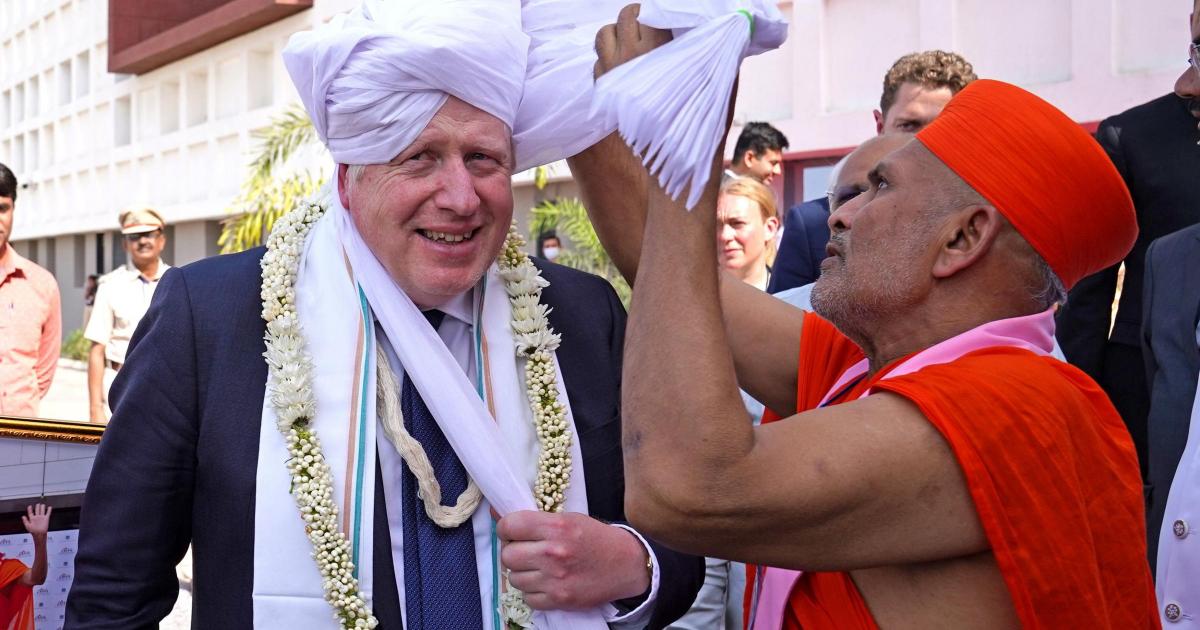Of course, it was not. It was the top brass of a Labour Government, including Prime Minister Sir Keir Starmer and Chancellor Rachel Reeves, who were waxing lyrical.
Ms Reeves proclaimed: “Our landmark trade deal with India will unlock growth in every corner of the country – from advanced manufacturing in the north-east [of England] to whisky distilleries in Scotland.
“This Government is putting national interest first and more money in people’s pockets.”
It was far more obvious that Sir Keir was “putting national interest first” when he was arguing vociferously and vehemently against Brexit back in late 2019.
He has since embraced the key elements of the Tory hard Brexit: loss of free movement of people between the UK and the European Economic Area and the ending of frictionless trade between the UK and its biggest trading partner.
And Brexit is very relevant in the context of the India trade deal.
The natural thing to do when evaluating the benefits that are being forecast by the UK Government from the deal is to compare these with what has been lost as a result of Brexit.
The UK Government estimates that annual gross domestic product will by 2040 be 0.1% higher than it would have been without the India trade deal.
Office for Budget Responsibility chairman Richard Hughes said in spring 2023 of Brexit’s effect: “We think that in the long run it reduces our overall output by around 4% compared with had we remained in the EU.”
For the avoidance of doubt, 0.1% is one-fortieth of 4%.
The Labour Government’s outpourings over the India trade deal were so reminiscent of the Boris Johnson era.
Sir Keir declared on Tuesday: “We are now in a new era for trade and the economy. That means going further and faster to strengthen the UK’s economy, putting more money in working people’s pockets.
Read more
“Through this Government’s stable and pragmatic leadership, the UK has become an attractive place to do business. Today we have agreed a landmark deal with India – one of the fastest-growing economies in the world, which will grow the economy and deliver for British people and business. Strengthening our alliances and reducing trade barriers with economies around the world is part of our plan for change to deliver a stronger and more secure economy here at home.”
It was all a bit over the top.
A “landmark deal”, yet it boosts annual UK GDP by only 0.1% by 2040. So maybe not that “landmark” Sir Keir?
And it didn’t stop there.
Secretary of State for Scotland Ian Murray declared: “This deal is great news for Brand Scotland, with our goods, businesses and services gaining access to what is projected to be the world’s third-largest economy by 2027.
“It’s especially exciting for our world-renowned whisky industry with tariffs being slashed on Scotch exports. From food, drink and textiles production, to clean energy, advanced manufacturing, life sciences and financial services, Scotland has so much to offer India and the UK Government is determined to make the most of those opportunities.”
Secretary of State for Business and Trade Jonathan Reynolds said: “The UK Government’s number one mission is growing the UK and Scottish economy – part of our plan for change so we can put more money in people’s pockets.
“By striking a new trade deal with the fastest-growing economy in the world, we are unlocking growth and delivering for Scotland’s economy and wages every year. In times of global uncertainty, a pragmatic approach to global trade that provides businesses and consumers with stability is more important than ever.”
So we have that word “pragmatic” from both Sir Keir and Mr Reynolds.
A pragmatic approach, however, would surely involve the Labour Government moving to restore frictionless trade with the UK’s largest trading partner.
That would after all be a far more productive effort than trying to do trade deals with faraway countries.
The Conservatives exerted much energy in agreeing and crowing about free trade deals with Australia and New Zealand offering only tiny net benefits to the UK relative to what has been lost with Brexit.
And now we have Labour following suit in terms of the India deal.
“Pragmatic”, when it comes to Labour’s approach, seems to be much more to do with politics.
It has been plain for a long time now, since way before the election on July 4 last year, that Sir Keir is content to embrace the two key elements of the Conservatives’ hard Brexit so as to try to keep on side those “red wall” voters in the north of England who love Brexit and swept Mr Johnson to power in the December 2019 election.
If there was actually a pragmatic approach on the economic front, Sir Keir would be pulling out all the stops to get the UK back into the European single market as soon as possible.
Success in such an endeavour would deliver a huge boost to the UK economy, with the numbers speaking for themselves, rather than a tiny 0.1% benefit which Labour seems to have decided to sell to the public by shouting about at maximum volume.
